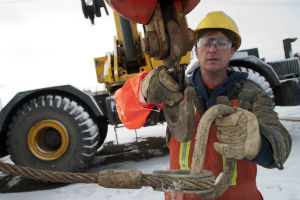
Dear Working Wise:
I am applying for a job that I really want, but I think I’m up against some stiff competition. I need a resumé that will help me stand out and get noticed. Do you have any suggestions? Signed, Eager Job Hunter
Dear Eager:
Yes, your resumé must be brief and compelling, because employers use resumés to quickly sort through stacks of applicants and decide who they want to meet.
Your resumé should focus on your strongest qualifications so use a format that puts your most impressive strengths at the beginning.
If you want to emphasize your career progression, list your work, education or volunteer experiences in reverse chronological order. Chronological resumés are the most common type of resumé.
To emphasize the skills you have learned, use a combination format that groups your skills into categories. Be sure to include a brief chronological account of your background and describe how your skills benefited your current and former employers, e.g., increased sales, saved money, improved efficiency, etc.
If you don't have much work experience but your education is directly related to the work you are applying for, list your education first and stress the skills and abilities that your formal training has provided.
For more information, and sample resumés, check out the Resumé tips sheets on the Alberta Learning Information Service (ALIS) web site at http://alis.alberta.ca.
When drafting your resumé, remember:
· Your resumé should be two pages maximum. Busy employers won't take the time to read through a lot of information;
· Print it on good-quality white or off-white letter-size paper;
· Make it look professional and inviting to read;
· Be clear and concise. Every statement should emphasize a skill or ability. Drop unnecessary words or sentences to tighten up your statements;
· Ensure all the information is positive and relevant to the job requirements;
· Use action verbs – “developed, created, coached, guided, produced.” Avoid passive phrases like "I was responsible for" or "my duties involved";
· Don't exaggerate or misrepresent yourself—employers will check;
· Include your daytime contact information;
· Don’t include a photograph or unnecessary personal information;
· Check spelling and grammar--don’t take yourself out of the running over a silly little error;
· List your references on a separate page. Always ask your references if they are willing to provide a positive reference for you and ensure they can verify the skills you want to emphasize; and
· Always include a covering letter and use it to highlight your qualifications for the position.
For more tips, or for a second opinion on your resumé, visit www.alis.alberta.ca and take advantage of the free, secure online e-Resumé Review Service.
You can also visit your nearest Alberta Works Centre and take advantage of their library of resumé-writing books or register for a free Resumé Writing workshop. A list of Alberta Works Centre locations is available at http://employment.alberta.ca/offices.
Do you have a work-related question? Send your questions to Working Wise, at charles.strachey@gov.ab.ca. Charles Strachey is a manager with Alberta Human Services. This column is provided for general information.


















